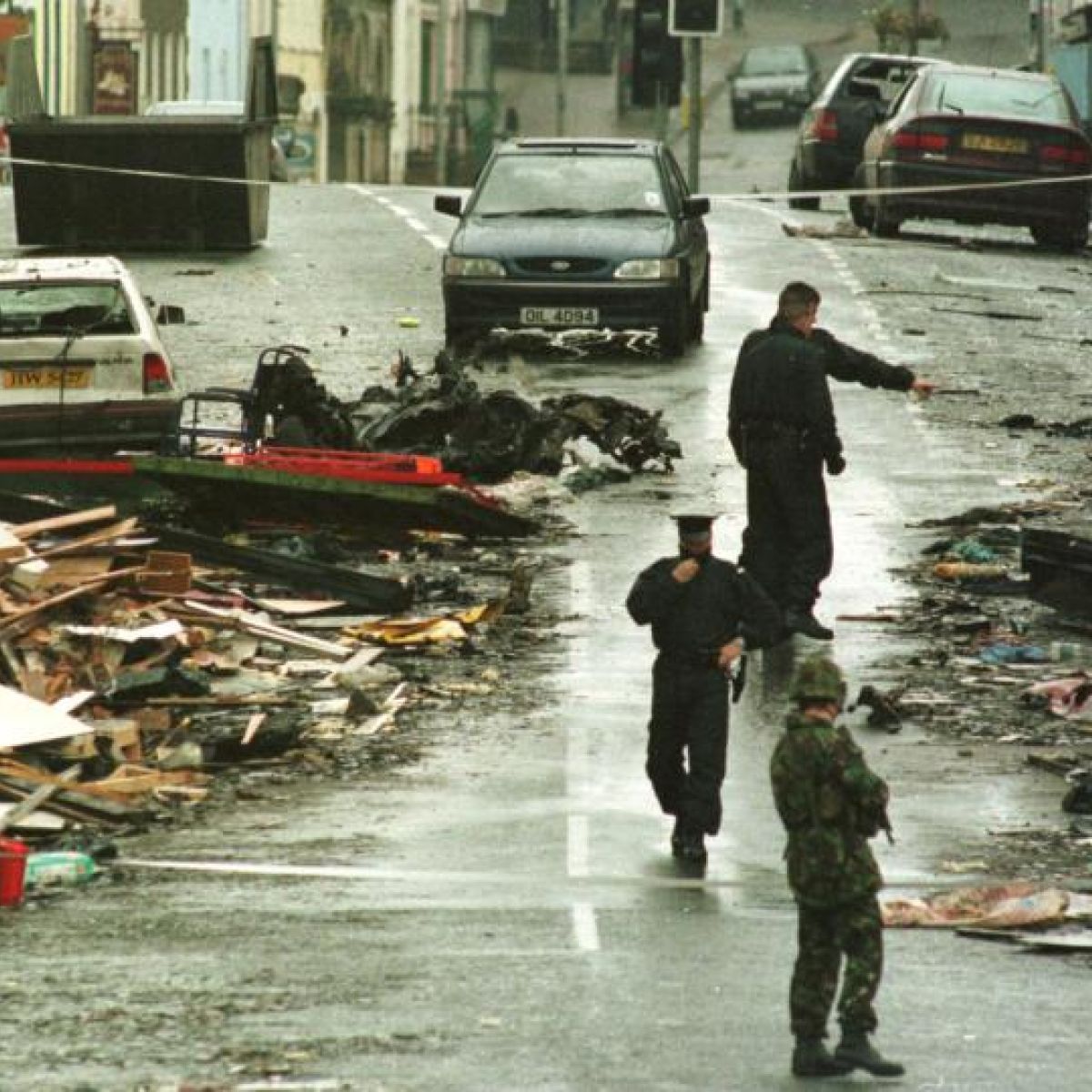On this day in 1998, a car bomb exploded in Omagh, County Tyrone, resulting in a devastating loss of life.
The bomb was part of a campaign, then being waged by the RIRA against the British Occupation of Ireland, and a coded warning had been issued in advance of the explosion.
Despite the precautions taken by Republican Volunteers, who went out to target the British Occupation, not the civilian population, it was not enough to stop the deaths of 29 innocent civilians.
In the years since this tragedy, it has emerged that it is “highly likely” that Britain had advanced warning of the bomb, as early as August 4, yet did nothing to attempt to prevent the Republican operation in Omagh.
In fact on the day in question, the RUC actually moved people towards the bomb car, resulting in the tragic loss of life.
The question that has to be asked is, why did the Brits not act to prevent the Omagh Bombing?
The answer is simple, though it will not be accepted by all.
Britain is at War in Ireland. The Brits deliberately decided not to prevent the Republican Operation on August 15, 1998 because as part of their dirty war, British Imperialism wanted to take advantage of human tragedy, to sound the death knell of militant Republicanism.
By August 1998 the Brits had succeeded in bringing the Provisionals into its colonial administration in Ireland. The Imperialists were now free to concentrate on attempting to remove armed resistance to their occupation of Ireland and as in years before were quite happy to employ dirty tricks to do so.
The planned Omagh bombing provided them with the opportunity to do just that. Having allowed the bomb to go ahead and having directed members of the public towards the car, the Brits were able to use the tragedy to crack down on militant Republicanism across Ireland.
In an effort to conceal their own complicity in the tragedy, British Imperialism waged a concerted campaign against a number of Republicans, attempting to link them to the Omagh Bomb. These Republicans included Michael McKevitt, Liam Campbell and Seamus Daly.
As part of the campaign against these men, Britain’s lackey, the Free State, introduced a new offence of ‘Directing Terrorism’, in order to convict Michael McKevitt in a non jury special court. Britain has continued to label false charges against Seamus Daly, who was held on remand in Maghaberry until as recently as 2016, when MI5’s case against him was shown for the farce it was and fell apart. Today, Britain continues to attempt to set up Liam Campbell and is currently trying to orchestrate his extradition from the Free State to Lithuania as part of an MI5 operation against Republicans.
The blame for tragic loss of life on August 15 1998 must lie firmly with British Imperialism. Omagh was part of Britain’s long history of the dirty war in Ireland. 23 years on, MI5 continues to operate in all parts of Ireland and its war against Republicanism is far from over.
Britain Should Get Out of Ireland!


One reply on “The Omagh Bomb Reconsidered”
I agree that the British permitted the bombing to go ahead and probably directed civilians toward the carbomb in order to damage the continuing resistance of parts of the Republican movement.
The horror at the carnage facilitated not just general opprobrium against those still resisting and the bringing in of new repressive legislation (in the 26 Counties); it also facilitated the compromised part of the movement to send pairs of their people to knock on the doors of continuing resistance activists to threaten them.
At the time I had members of my family active in either sections and the threats were delivered to the (neutral) daughter of one of them to pass on to the parent.
The atmosphere was also used to intimidate people in the Irish community in Britain. An Irish centre in SE London, where the local branch of the Irish in Britain Representation Group was preparing to hold its annual commemoration of the 1916 Rising, was targeted by hostile media to the extent that the band booked to play pulled out at the very last minute.
I would also comment that to plan such a bombing during that event was a high-risk decision and played right into the hands of the colonial occupying power (as did some of the bombings in Britain) — which does not of course in any justify the repressive measures following it.